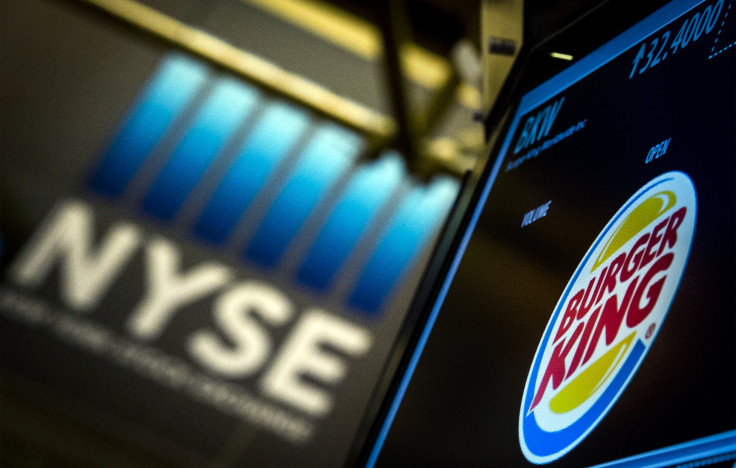Takeover Targets See Stocks Slide In Wake Of Inversions Crackdown

The Obama administration's new effort to halt the trend of American companies such as Burger King and Medtronics relocating overseas to lower their tax bills already is having an impact on some proposed deals. The Treasury Department Monday announced new rules to crack down on the technique known as "inversion" in which a U.S. multinational restructures so the American parent is replaced by a foreign corporation to avoid U.S. taxes. In particular, British and Irish companies have been attractive due to their lower corporate tax regimes.
Several pending deals that could be at risk (along with the value of the deal):
-- Medtronic, a medical device maker, is targeting Covidien, an Irish competitor ($46.84 billion
-- Burger King Worldwide is pursuing Canadian doughnut and coffee chain Tim Hortons ($12.80 billion)
-- AbbVie, a giant pharmaceutical company, is pursuing Shire, an Irish competitor ($56.06 billion)
-- Mylan, a drugmaker, is pursuing Abbott Laboratories, a British company ($5.27 billion)
-- Salix Pharmaceuticals is pursuing Cosmo Technologies, an Irish company ($2.68 billion)
-- Chiquita Brands International is pursuing Fyffes, an Irish produce importer ($510 million)
-- Auxilium Pharmaceuticals is pursuing QLT, a Canadian competitor ($350 million)
"I think it puts quite a bit of cold water over those deals," Navid Malik, head of life sciences research at Cenkos Securities in London, told the Wall Street Journal. "In the end, it is going to be very difficult to avoid U.S. tax[es]."
Some of the targeted companies, such as Tim Hortons, announced Tuesday morning the new rules wouldn't impact pending deals.
“We are moving forward as planned,” company spokesman Scott Bonikowsky said. “This deal has always been driven by long-term growth, not by tax benefits.”
Shire, the takeover target of American pharma giant AbbVie, was down 2.5 percent in trading in London Tuesday, as was AstraZeneca, a British-Swedish multinational that spurned an offer from Pfizer in May.
© Copyright IBTimes 2024. All rights reserved.











